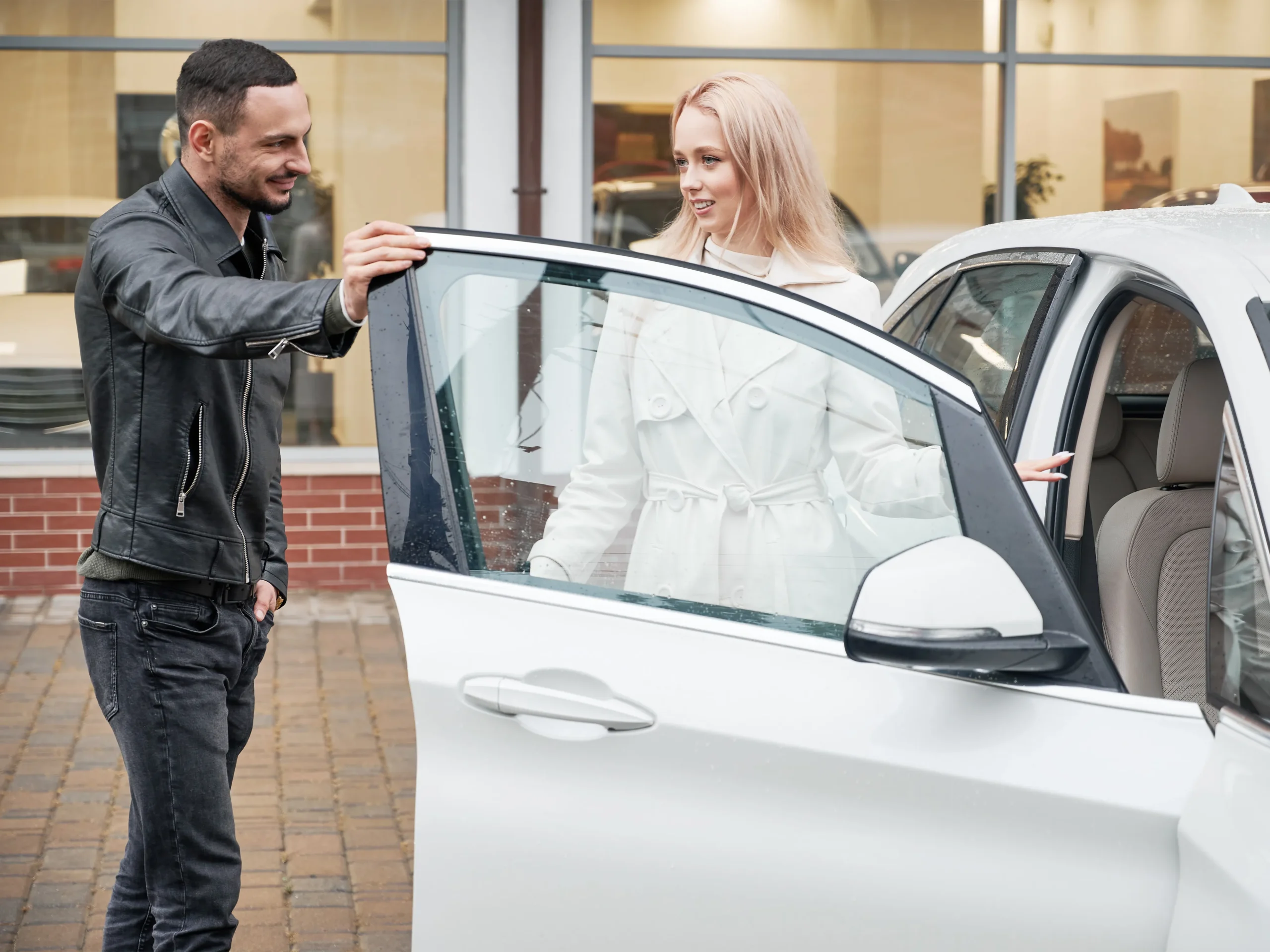Yes, you can part exchange a car that has outstanding finance. It’s a common practice in the UK car market, and dealers are well-versed in handling these transactions. The process involves the dealer settling your existing finance agreement and arranging the part exchange as part of a single transaction.
Table of Contents
- Can You Part Exchange a Car with Outstanding Finance?
- How Part Exchange Works with Outstanding Finance
- Understanding Settlement Figures and Equity
- The Part Exchange Process with Outstanding Finance
- Important Considerations When Part Exchanging
- Different Finance Types and Part Exchange
- Common Questions About Part Exchange with Finance
- Making Your Decision
- Professional Tips for Success
- Getting Support
Can You Part Exchange a Car with Outstanding Finance?
Understanding Settlement Figures and Equity
Positive Equity Scenario
When your car is worth more than the settlement figure, you’re in positive equity. For example, if your car is valued at £15,000 and your settlement figure is £12,000, you have £3,000 in positive equity that can contribute toward your next vehicle.
Negative Equity Scenario
If your settlement figure exceeds your car’s value, you’re in negative equity. For instance, if you owe £13,000 but your car is worth £11,000, you have £2,000 of negative equity that will need to be addressed as part of the new agreement.
The Part Exchange Process with Outstanding Finance
Initial Steps
The dealer will begin by valuing your current vehicle and checking your settlement figure. They’ll then calculate whether you’re in positive or negative equity, which affects how the transaction proceeds.
Finance Settlement
The dealer handles the settlement directly with your finance company. This is a crucial benefit of part exchanging through a dealer rather than trying to sell privately while under finance.
New Vehicle Arrangement
Once the settlement process is understood, you can proceed with choosing your new vehicle and arranging any new finance if required. The dealer will incorporate your equity position into the new agreement.
Important Considerations When Part Exchanging
Timing Matters
Your settlement figure usually remains valid for a limited time, typically 14 days. It’s important to time your part exchange accordingly to avoid having to request an updated figure.
Documentation Required
- • Current finance agreement details
- • Settlement letter from your finance company
- • Vehicle registration document (V5C)
- • Service history and maintenance records
- • All keys and associated documentation
Market Value Impact
- • Age and mileage
- • Service history
- • Overall condition
- • Current market demands
- • Seasonal variations
Different Finance Types and Part Exchange
Personal Contract Purchase (PCP)
Part exchanging a car on PCP requires special consideration of the balloon payment and any early termination fees. The settlement figure will include the balloon payment, which can significantly affect your equity position.
Hire Purchase (HP)
HP agreements often provide more straightforward part exchange options. The settlement figure represents the remaining payments plus any fees, with no balloon payment to consider.
Common Questions About Part Exchange with Finance
Will I Have to Handle Two Finance Agreements?
No, the dealer manages the settlement of your existing finance as part of the part exchange process. You won’t be responsible for two separate agreements.
Can I Part Exchange if I’m in Negative Equity?
Yes, though you’ll need to account for the negative equity, either by paying it off or incorporating it into your new finance agreement.
Does Part Exchanging Affect My Credit Score?
The settlement of your existing finance agreement shouldn’t negatively impact your credit score, though any application for new finance will involve a credit check.
Making Your Decision
- • Obtain and verify your settlement figure
- • Get multiple valuations for your current vehicle
- • Compare deals from different dealers
- • Understand all terms and conditions
- • Calculate total costs including any new finance
Professional Tips for Success
Research Current Values
Understanding your car’s true market value helps ensure you receive a fair part exchange offer. Use multiple valuation tools and get several dealer quotes.
Understand Your Agreement
Review your current finance agreement carefully, particularly regarding early settlement terms and any associated fees.
Don’t Rush
Take time to understand all aspects of the transaction before proceeding. A reputable dealer will respect your need to make an informed decision.
Getting Support
If you need additional guidance, several resources are available:
- • Money Advice Service for free, impartial financial guidance
- • Your current finance provider for settlement information
- • Financial Conduct Authority for consumer protection information
- • Citizens Advice for general consumer rights advice
Part exchanging a car with outstanding finance is a common transaction in the UK car market. While it may seem complex, dealers handle these situations daily and can guide you through the process. The key is understanding your position and ensuring any new agreement meets your financial circumstances.
Part Exchange with Finance: The Basics
When a car is financed via Personal Contract Purchase (PCP) or Hire Purchase (HP), it is often still possible to part exchange before the contract term ends. PCP typically gives you options at the end, either return the car, pay the balloon (or guaranteed future value), or part exchange it for another vehicle. Hire Purchase means at the end you own the car, but you may also part exchange midway if you settle outstanding amounts. PCP & HP agreements both allow part exchange with varying conditions.
However, not all finance products permit this. Lease or contract hire deals often do not allow ownership or part-exchange by the driver because the car is never legally theirs. To see which products allow what, check services that specialise in PCP, HP, or car finance generally, and make sure you read the fine print in your agreement.
Understanding Settlement Figures and Equity
One of the crucial parts of part exchanging with finance is knowing your settlement figure. This is the amount you’d have to pay to your finance company to clear your current agreement immediately. It includes any remaining instalments, interest, fees, sometimes the “balloon payment” in PCP, and early settlement charges.
Equity (or “positive equity”) arises when the market value of your car is higher than the settlement figure. For example, if your car is worth £10,000 and you owe £7,000 to settle, you have £3,000 of positive equity. You can use that equity as a deposit toward your next vehicle.
Conversely, negative equity happens when you owe more than the car is worth. That often occurs early in a PCP or HP contract because depreciation is steep. For example, depreciation in the first year of ownership often eats two-thirds of a car’s value, depending on make, model, mileage. In negative equity, you’ll have to make up the shortfall either by paying out of pocket or rolling it into a new finance deal (which increases the amount you’re borrowing and may raise your monthly payments).
One more important nuance: settlement figures are only valid for a limited time (often 14 days after request) and can include additional charges if you wait or make more payments.
Professional Tips: How to Make the Best Deal
Financial experts suggest approaching part exchange with both caution and strategy. Here are expert-level considerations.
First, always check the original finance agreement. There may be clauses for early repayment fees, conditions on condition or mileage (especially under PCP). Know whether your agreement allows you to settle early without punitive charges. Some lenders require you to have paid a certain proportion of the total before voluntary termination or settlement is possible.
Next, research your car’s market value independently. Use online valuation tools, dealer appraisals, and compare similar cars in used car markets. Being informed about what your car could fetch helps when you negotiate a part exchange.
Keep your car in good condition. Experts note that mileage, service history, cosmetic appearance and condition greatly influence what dealers will offer. Even small maintenance fixes may improve valuation.
Work out worst-case scenarios: if you have negative equity, decide if it’s worth waiting until more of the finance is paid down, or making extra payments now to reduce what you owe. Rolling negative equity into a new deal may seem convenient, but long term it costs more in interest and may stretch your budget.
Consider whether the next finance agreement (whether PCP, HP or another product) gives you favourable terms. A larger deposit (which might come from your part exchange equity) lowers monthly payments and the total interest paid. Also compare finance products, sometimes no-deposit PCP offers, or competitive HP deals can be better.
Get all documentation ready (V5C logbook, service history, MOTs). The smoother the paperwork, the less leverage dealers have to lower offers.
Finally, think about resale and your future requirements. Modelling where your lifestyle might go (family size, commuting, tax changes, environmental rules) helps make sure your next car is more suitable long term, meaning you won’t regret part exchanging too early.
Legal, Financial & Insurance Implications
Part exchanging a financed car also interacts with legal ownership, warranties, and insurance.
Legally, until you’ve paid the settlement figure, you do not fully own the car. That means you cannot sell or dispose of it privately without settling finance first. Dealers will require proof that the finance is settled.
On warranties, any modifications, mileage excess, or failure to adhere to maintenance may void certain aspects, this is particularly relevant under PCP where condition & mileage limits are often stipulated. Insurance companies expect any damage, alterations, or extra wear disclosed; non-disclosure can lead to rejections of claims.
When Part Exchange Might Not Be Your Best Option
There are times when part exchanging is not financially sensible.
If you are in large negative equity, part exchange may burden your next monthly payments more than continuing the current agreement until more equity builds up. Also, if the dealer’s valuation is much lower than independent estimates, you might do better selling privately. While that’s more work, you often get more money.
If you’re close to the end of a PCP contract, and conditions/mileage are still acceptable, returning the vehicle or paying the balloon payment might be cheaper than trading in early. Early termination often triggers fees.
If your credit rating has changed since your original finance agreement, or your financial circumstances have tightened, entering a new finance deal may mean you’ll pay more interest or receive less favourable terms, so compare and, if needed, wait until your financial position improves.
Conclusion:
Part exchanging a car that is still under finance is possible, and often practical. But success depends on knowing exactly where you stand financially: what the settlement figure is, whether you have positive or negative equity, and what terms your current and next finance agreements carry. A careful, informed approach, supported by good research and planning, can save you money and stress.






